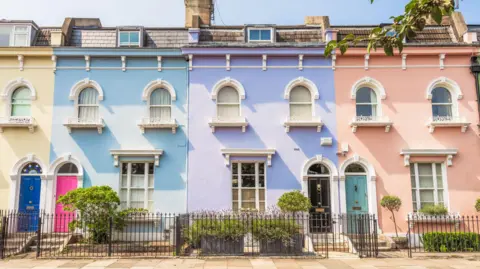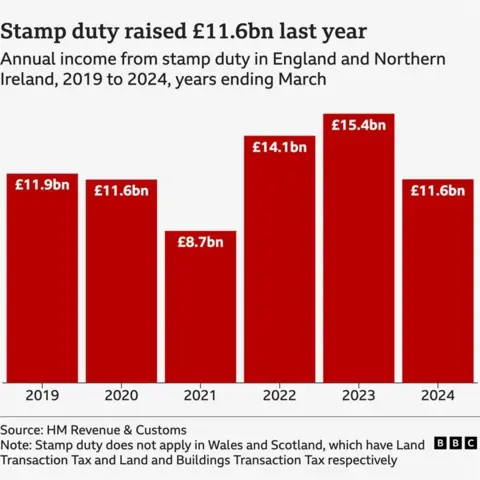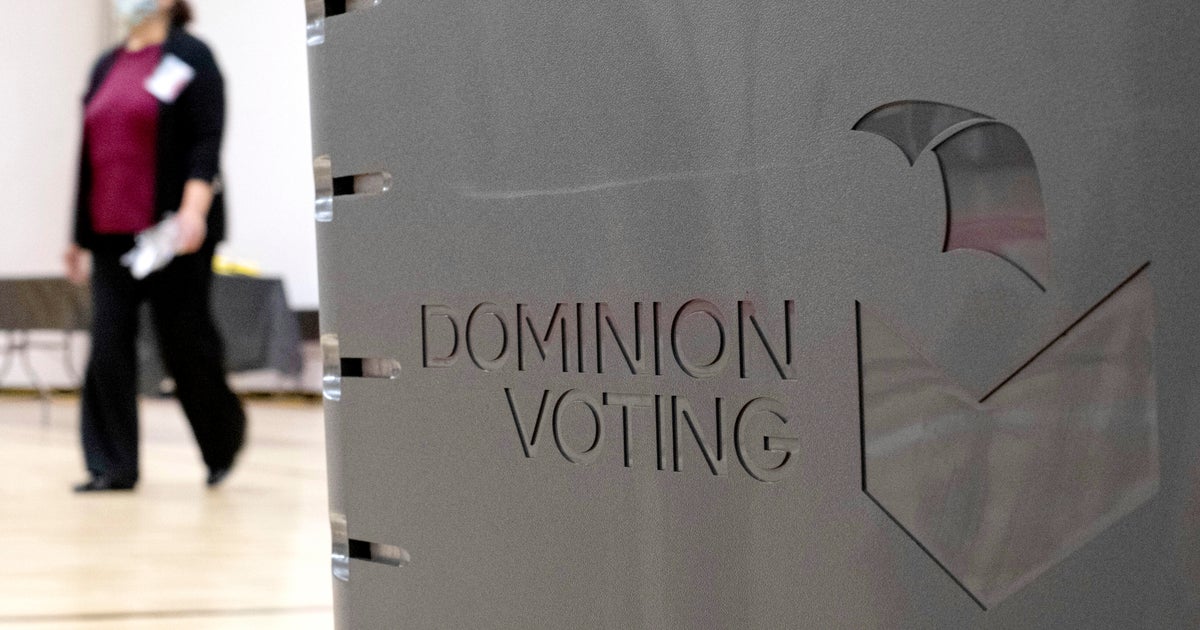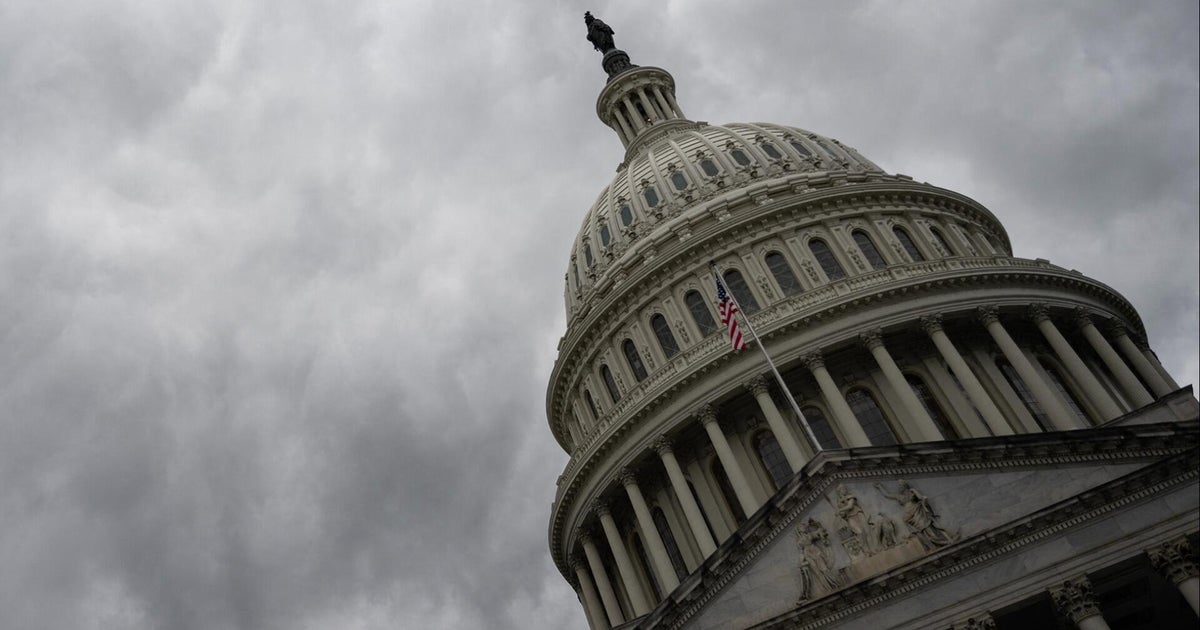Kevin PeacheyCost of living correspondent

 Getty Images
Getty Images
The debate around stamp duty is intensifying. When Kemi Badenoch said a future Conservative government would abolish it on the purchase of main homes, it went down well at the Tory Party conference.
There has also been speculation that the Chancellor, Rachel Reeves, is considering replacing it.
Scrapping stamp duty would be popular among some home buyers, including first-time buyers.
But, analysts say there would be some significant consequences of scrapping stamp duty for primary residences, affecting buyers, sellers and the wider UK economy.
1. House prices might rise
Whenever there has been a temporary easing of stamp duty, such as in the immediate aftermath of the Covid lockdowns, house prices have then risen.
It is more difficult to judge whether a permanent abolition would have the same long-term impact on prices as the short-term sweetener of a stamp duty holiday.
However, greater demand is likely to feed through to asking prices.
"If, and this is a big if, it is a simple tax giveaway, the likelihood is that the current stamp duty bill simply passes through into prices," says Lucian Cook, head of residential research at Savills.
In turn, that could mean first-time buyers paying less in stamp duty, but having to find a bigger deposit.
"Given the way stamp duty works, this would be unevenly distributed across the country," Mr Cook added.
The most obvious point here is that the government in Westminster can only control stamp duty in England and Northern Ireland. Scotland and Wales have their own land and transaction taxes overseen by the devolved administrations.
2. Tax cut for the wealthy
A swathe of first-time buyers do not pay stamp duty. That's because, in England and Northern Ireland, they are exempt when buying properties of up to £300,000.
"For them, the enormous challenge is raising a deposit," says Sarah Coles, head of personal finance at investment platform Hargreaves Lansdown.
Data from property portal Rightmove suggests that 40% of homes for sale in England are stamp duty free for first-time buyers.
While the vast majority of movers pay stamp duty, the rate increases at certain price thresholds.
So, the bigger the home, the bigger the benefit, if stamp duty was scrapped.
This will also mean a big regional difference in the impact of such a policy.
At the moment, 76% of properties on sale in the North East of England are free of stamp duty for first-time buyers, according to Rightmove's figures. In London, it is only 11%.
Richard Donnell, from Zoopla, points out that 60% of all stamp duty is paid in southern England - so the majority of the benefit of abolition would be felt in the south.
3. Easier to find somewhere to move to
One of the great selling points of stamp duty abolition is the extra mobility it should provide for workers, buyers, sellers and downsizers, according to experts.
"Homeownership is the foundation of a fairer and more secure society - but stamp duty has denied that opportunity to too many for too long," says Paula Higgins, chief executive of the Homeowners Alliance.
"Our research shows over 800,000 homeowners have shelved moving plans in the past two years, and stamp duty is a major barrier."
The Institute for Fiscal Studies (IFS), an independent economic think tank, says the winners will be those who want to move frequently, to more or less expensive homes.
It should, for example, clear an obstacle for older homeowners, who want to sell a family home but are discouraged by stamp duty. If they are more likely to move, then their homes become available to younger families and the whole market becomes more fluid.
However, others suggest the influence of stamp duty could be overblown.
"Take someone downsizing, from a £750,000 property to a £300,000 one. In England and Northern Ireland, they'd pay £5,000 in stamp duty. It's a fraction of what they're likely to pay in estate agency fees, and sits along a huge range of costs from conveyancing to removals," Ms Coles from Hargreaves Lansdown says.
"It begs the question of whether removing the cost of the tax is a gamechanger."
4. Potential tax rises elsewhere
Stamp duty raises a lot of money for the Treasury, so scrapping it would leave a gap in the public finances.
The IFS said that the direct cost of the Conservative policy might be around £10.5bn to £11bn in 2029-30, although the Tories' own estimate is about £9bn.


The question for any administration tempted to scrap or reduce stamp duty is how else it finds the money.
The Conservatives say they will make savings elsewhere. The other option is to raise other taxes.
As some analysts have said, the main consideration is not what is scrapped, but what replaces it.
5. Bad news for renters
The idea of scrapping stamp duty for primary residences could end up meaning less choice for renters.
The IFS suggests it could discourage the purchase of rental properties by landlords, as they would still have to pay stamp duty.
The think tank says it would increase the more favourable tax treatment of owner-occupation relative to renting.

 5 hours ago
2
5 hours ago
2

















































